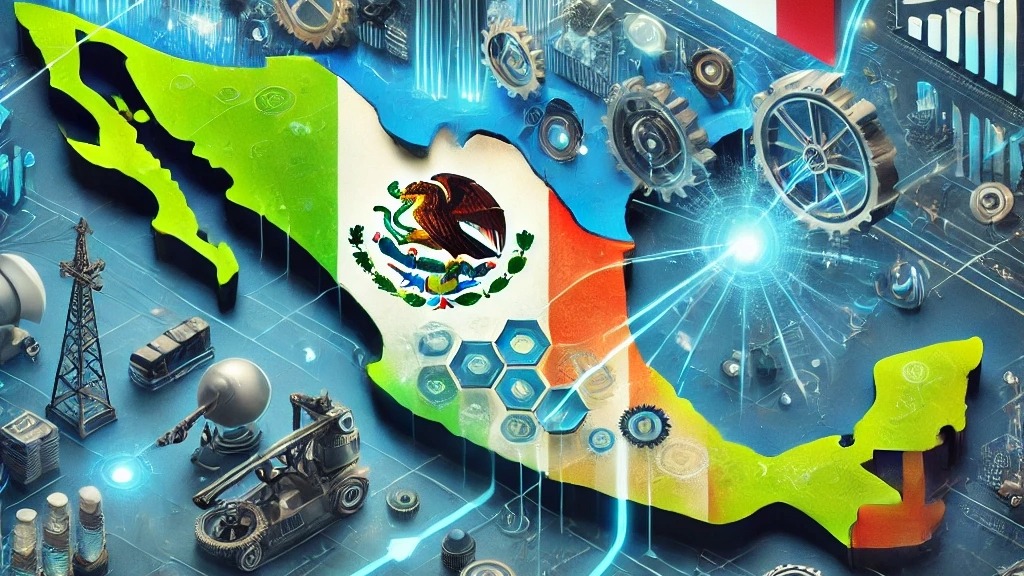Mexico remains attractive for investment in 2024, but pace slows down

Mexico continues to attract investors, although behind the pace it set in 2023. On Monday, the Ministry of Economy (SE) reported 48.3 billion dollars in investments announced by foreign and domestic companies through July, a figure that represents a slowdown after companies made 52 investment announcements totaling 25.84 billion dollars between January 1 and February 29.
Mexico remains a magnet for global investment in 2024, attracting US$48.3 billion in the first seven months of the year, reinforcing its crucial role in the global supply chain.
However, this investment flow, although significant, shows a slight slowdown compared to the breakneck pace observed in 2023, when the country reached a record $110.7 billion in announced investments.
As Mexico is on track to surpass US$190 billion in cumulative investment by 2023 and 2024, several factors can be identified that strengthen its position, as well as challenges that must be addressed to maintain and enhance this growth.
One of Mexico's key strengths lies in its strategic geographic location, which makes it a vital link in supply chains between North America and other global markets. Proximity to the United States, combined with the benefits of the T-MEC, allows companies to reduce logistics costs and take advantage of a favorable business environment.
This advantage is reflected in the 53% concentration of investments in the manufacturing sector, especially in the production of beverages, automobiles, auto parts, iron, steel and electrical components.
Mexico's ability to attract and retain these investments underscores its strength as a manufacturing hub and its attractiveness to companies seeking an efficient and competitive operating environment.
However, Mexico's dependence on specific sectors such as automotive manufacturing and beverage production also reveals a potential weakness.
Although these sectors have been key drivers of growth, the concentration of investments in limited areas may expose the country to economic risks if there is a slowdown in these markets or if technological disruptions arise.
For example, the focus on automobile and auto parts production could face challenges if it does not quickly adapt to the global transition to electric vehicles and emerging mobility technologies, which could leave Mexico vulnerable to rapid changes in market demand.
The opportunities for Mexico are vast, particularly in the diversification and expansion of its industrial base. Artistic Milliners' recent investment in Coahuila, which will create up to 3,000 jobs, and Sinoboom's entry into Guanajuato with a heavy machinery manufacturing project, demonstrate Mexico's potential to attract investment in emerging sectors.
In addition, the intention of Chinese automakers such as Chirey to establish plants in Mexico, despite trade tensions with the United States, offers a window of opportunity for the country to expand its influence in the global automotive industry. These investments can not only diversify Mexico's economy, but also position it as a leader in advanced manufacturing technologies.
However, the economic and political environment also presents threats that could affect the flow of investment. Global competition to attract capital, together with uncertainties arising from U.S. trade policies, especially in relation to the entry of Chinese-made vehicles into the U.S. market, could create a climate of uncertainty that discourages future investment.
Also, slow decision making by some companies, as seen in the delays in the construction of announced automotive plants, reflects the caution with which some foreign investors may approach the Mexican market, particularly in a context of geopolitical tensions.
In this complex landscape, Mexico is at a crossroads that requires it to capitalize on its strengths, such as its geographic location and manufacturing capacity, while addressing weaknesses and threats that could compromise its attractiveness as an investment destination. The key to long-term success lies in the country's ability to diversify its economic base, adapt to emerging global trends and astutely navigate international trade dynamics, all while remaining steadfast in its commitment to creating a favorable environment for investment and economic development.
If Mexico manages to overcome these challenges and take advantage of the opportunities available, it could not only maintain, but even expand its position as a prime destination for global investment, ensuring sustained economic growth and greater stability in the context of an increasingly interconnected and competitive world.
Collaboration: Editorial Auge.





